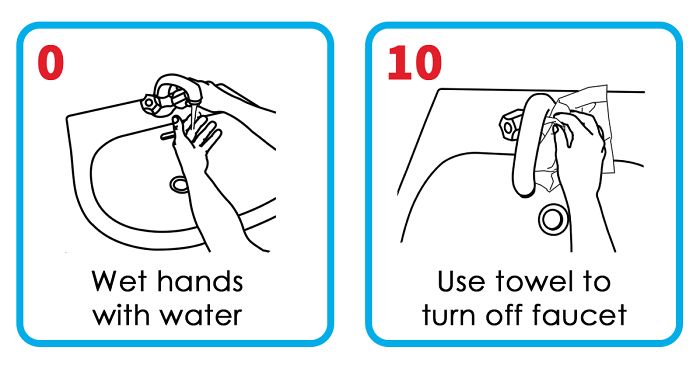
This Is How The World Health Organization Claims We Should Wash Our Hands
The novel coronavirus has already killed at least 2,800 people worldwide. With more than 83,000 global cases, there have been confirmed cases in every continent except Antarctica. And while authorities are working tirelessly to contain the outbreaks, there are things we can all do to protect ourselves.
However, when it comes to preventing viral infections — especially those that spread via droplets from coughs and sneezes — washing your hands is the first-line measure.
Reminding us how to properly do it, the World Health Organization (WHO) released a comprehensive step-by-step guide that shows the entire process.
Some people continue to question that something as simple as washing your hands could have a significant effect in the context of an epidemic.
However, a 2019 study from the Massachusetts Institute of Technology in Cambridge shatters these doubts.
“Viruses may be transmitted through air, resulting in the contagion of airborne infections or through physical contact between individuals. The transmission is accelerated when dense populations are concentrated in confined spaces, like an airport, with a lack of good hygiene and efficient air ventilation,” the researchers wrote.
The team used epidemiological modeling and data-driven simulations to see if and how better hand hygiene might affect the rate of disease transmission. Specifically at airports.
They looked at things like flight duration, flight distance, connections, and the time travelers spend in airports. Based on these numbers and studies on how people interact with each other and with their surroundings — as well as what this might mean for the potential of coming into contact with pathogens — the investigators ran a series of simulations of contagion patterns.
They concluded that if 60% (rather than the current 20%) of air travelers would keep their hands clean, it could slow down the spread of infections by almost 70%.
For more protective measures against the coronavirus, check out this advice the WHO issued to the public.
Here’s what people said about the guide
22Kviews
Share on FacebookWhy are people acting as if these are extreme and/or ridiculous? All this sounds like standard guidelines to me, I know I was taught similarly in elementary school. I'm not saying I follow every step every time, but at least I keep it in mind.
WASH YOUR HANDS. Wipe off surfaces (doorknobs and such). AND DO NOT WEAR A MASK UNLESS YOU ARE INFECTED! The mask is to stop a person spreading the disease, not stop them catching it. Sources: CDC; WHO.
So, then why do doctors and nurses wear masks in the hospital?
Load More Replies...Looking at this makes me realize I've been doing it sort of wrong 😐
I was always told to sing (to myself) "twinkle, twinkle, little star" while washing my hands, that is the amount of time needed.
Wash your hands before you pee. You know what you want to keep clean. You don't want to touch your face and mouth, but you're collecting germs, etc. all over your body. In your sleep your hands are wandering. Of course you will wash your hands properly a second time before you leave the bathroom.
Because not all bathrooms have warm water. If they specifically said to use warm water, some people would go "eh, no warm water here, might as well not wash my hands at all."
Load More Replies...Silly question: Is it alright to use regular towels (you know, fabric)? I never use single use tissues :0 but I might have to, just wondering.
I think it should be safe if you change/wash the towels frequently (not a healthcare professional, this is just my opinion). If you or someone in your household is sick, maybe use paper towels then...?
Load More Replies...That's why I HATE air dryers. Then you do not a have a towel to turn off the dirty faucet or use to open the dirty door handle. My boss wanted to install hand dryers at my work because they were "more sanitary" I fought him on it and when I explained how they are actually less sanitary because then you have to touch the germ ridden faucet and door handle he sided with me and we still have paper towels.
The thing I always remember from 2003's SARS was the posters pasted everywhere on how you should properly wash your hands. Thanks to those, it's ingrained in my mind still, 17 years later.
Am I the only one who did this anyway? My grandad taught me this exact way when I was a kid
WHO - DO NOT have our health as their best interest. Full of corruption, blatantly evident when it comes to this current COVID 19 outbreak. Money and politics is the name of the game.
Well make time then, I don't want to get sick by shaking your hand when I try to be courteous or after touching a surface you touched before me. It's just a small time investment considering the time it takes to recover from a flu or other viral or bacterial infection.
Load More Replies...Have you never used a public restroom? Many people skip handwashing entirely but even if they do, some people put on soap, do a quick rub and rinse and are done in 5 seconds. I'm glad the restroom door at work opens outward so I can push it open with my foot.
Load More Replies...Lots of people do get sick, and many do die. The flu kills over 10,000 Americans every year. Also these are pretty standard hand-washing guidelines, nothing extreme about it.
Load More Replies...Why are people acting as if these are extreme and/or ridiculous? All this sounds like standard guidelines to me, I know I was taught similarly in elementary school. I'm not saying I follow every step every time, but at least I keep it in mind.
WASH YOUR HANDS. Wipe off surfaces (doorknobs and such). AND DO NOT WEAR A MASK UNLESS YOU ARE INFECTED! The mask is to stop a person spreading the disease, not stop them catching it. Sources: CDC; WHO.
So, then why do doctors and nurses wear masks in the hospital?
Load More Replies...Looking at this makes me realize I've been doing it sort of wrong 😐
I was always told to sing (to myself) "twinkle, twinkle, little star" while washing my hands, that is the amount of time needed.
Wash your hands before you pee. You know what you want to keep clean. You don't want to touch your face and mouth, but you're collecting germs, etc. all over your body. In your sleep your hands are wandering. Of course you will wash your hands properly a second time before you leave the bathroom.
Because not all bathrooms have warm water. If they specifically said to use warm water, some people would go "eh, no warm water here, might as well not wash my hands at all."
Load More Replies...Silly question: Is it alright to use regular towels (you know, fabric)? I never use single use tissues :0 but I might have to, just wondering.
I think it should be safe if you change/wash the towels frequently (not a healthcare professional, this is just my opinion). If you or someone in your household is sick, maybe use paper towels then...?
Load More Replies...That's why I HATE air dryers. Then you do not a have a towel to turn off the dirty faucet or use to open the dirty door handle. My boss wanted to install hand dryers at my work because they were "more sanitary" I fought him on it and when I explained how they are actually less sanitary because then you have to touch the germ ridden faucet and door handle he sided with me and we still have paper towels.
The thing I always remember from 2003's SARS was the posters pasted everywhere on how you should properly wash your hands. Thanks to those, it's ingrained in my mind still, 17 years later.
Am I the only one who did this anyway? My grandad taught me this exact way when I was a kid
WHO - DO NOT have our health as their best interest. Full of corruption, blatantly evident when it comes to this current COVID 19 outbreak. Money and politics is the name of the game.
Well make time then, I don't want to get sick by shaking your hand when I try to be courteous or after touching a surface you touched before me. It's just a small time investment considering the time it takes to recover from a flu or other viral or bacterial infection.
Load More Replies...Have you never used a public restroom? Many people skip handwashing entirely but even if they do, some people put on soap, do a quick rub and rinse and are done in 5 seconds. I'm glad the restroom door at work opens outward so I can push it open with my foot.
Load More Replies...Lots of people do get sick, and many do die. The flu kills over 10,000 Americans every year. Also these are pretty standard hand-washing guidelines, nothing extreme about it.
Load More Replies...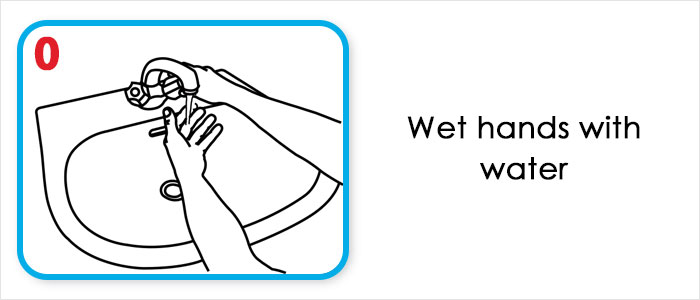
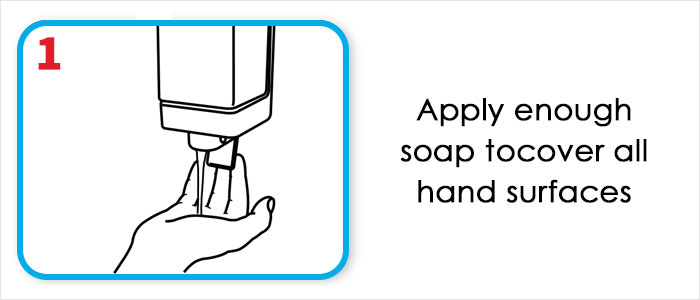
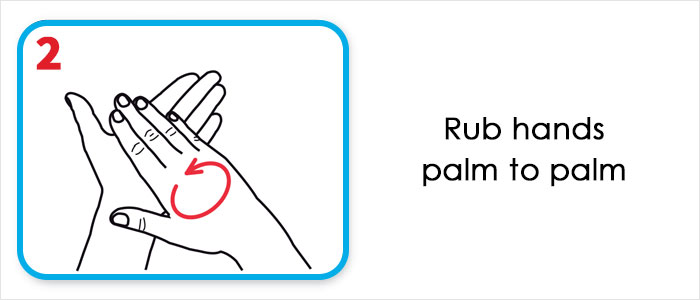
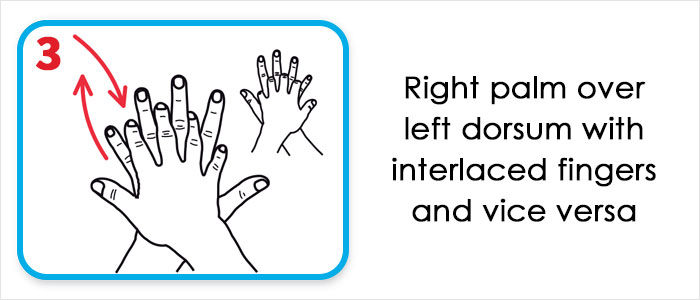
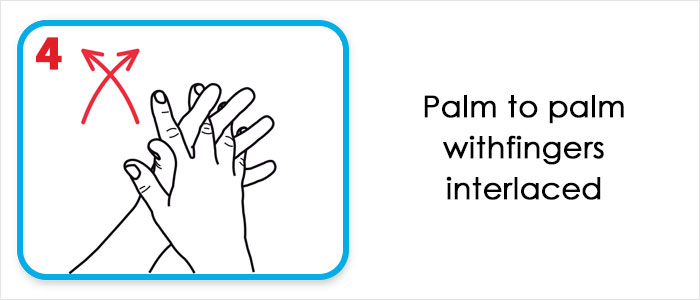
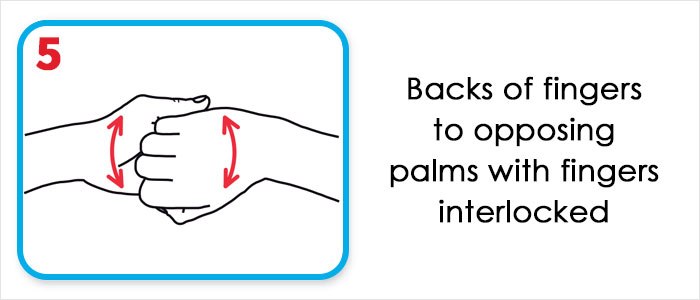
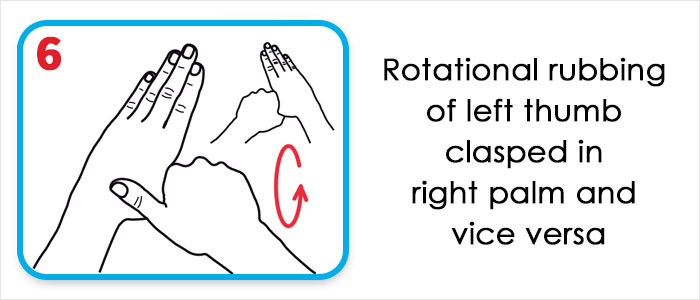
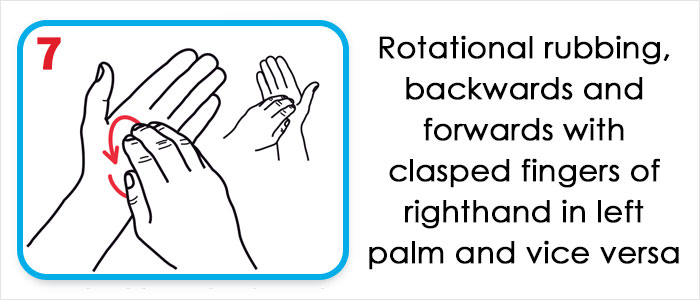
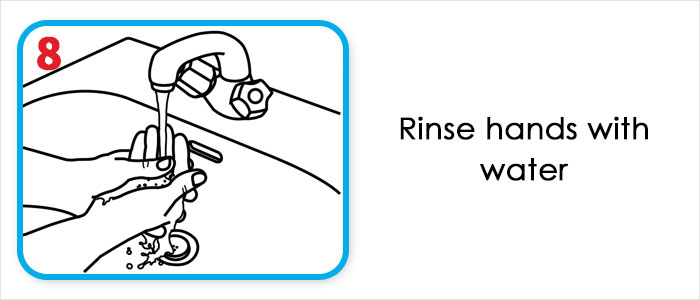
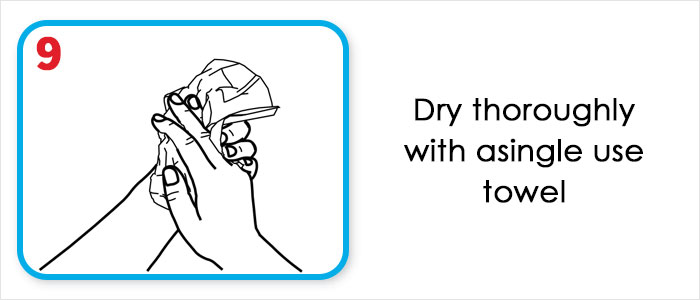
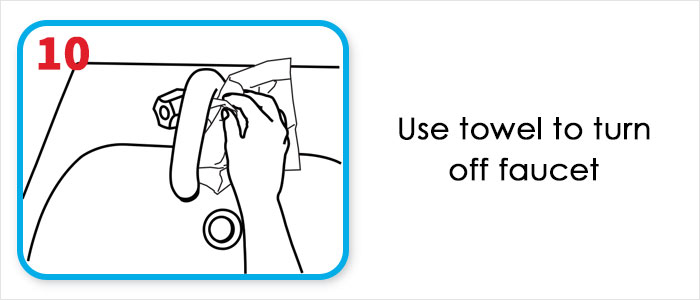
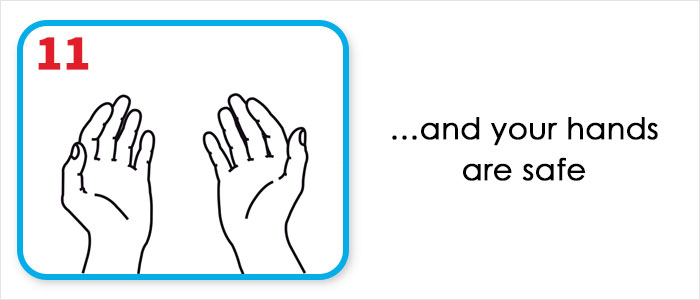



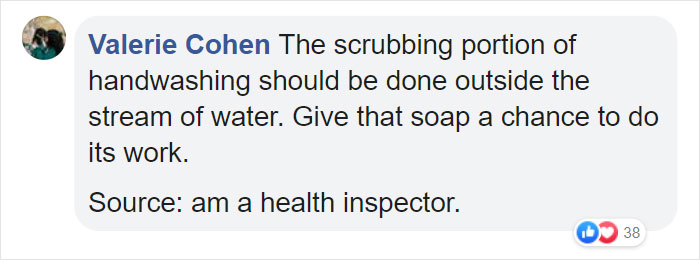
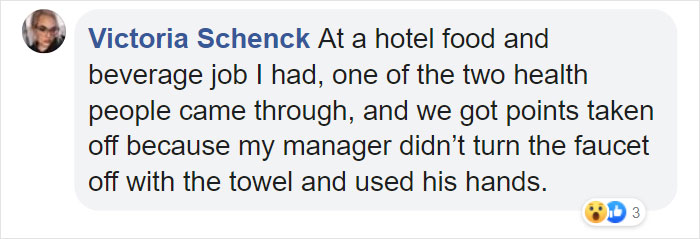
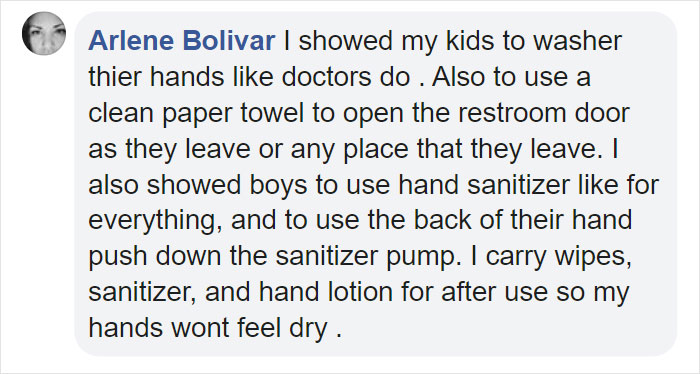
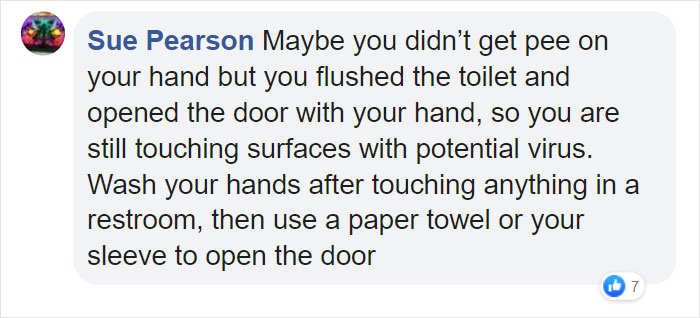

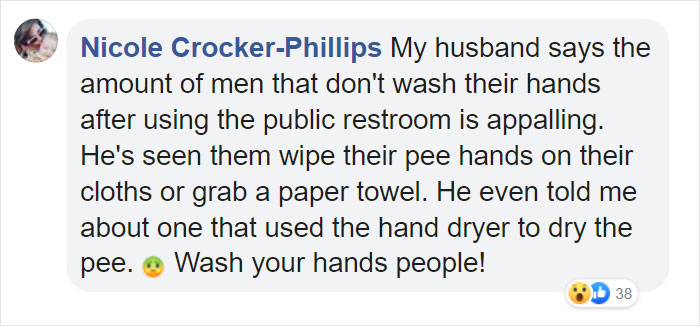
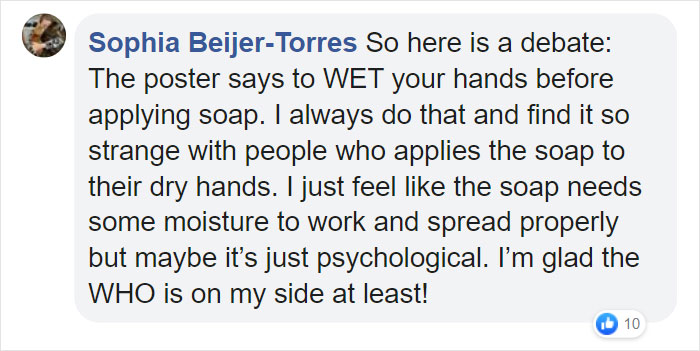




112
42